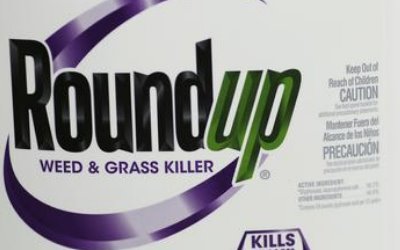Monsanto's Glyphosate Roundup Cancer Lawsuits - See if You Have a Case
Millions of people have been using glyphosate-based weed killers, including Roundup, for decades. Roundup was first made available as an herbicide in the early 1970s and since then, glyphosate has become the main ingredient in hundreds of herbicide products.
At the time, Roundup was deemed safe and environmentally-friendly. However, those claims became questionable when people started noticing a connection between glyphosate and non-Hodgkin lymphoma.
The Roundup cancer connection became even more clear when school groundskeeper Dewayne Johnson took Monsanto to court and a jury awarded him $289 million in 2018. After hearing all the evidence including expert testimony, the jury found that Monsanto knew Roundup contains carcinogens and failed to recall the product to protect consumers.
Have you been diagnosed with cancer after using Roundup?
The potential for developing cancer after glyphosate exposure isn’t limited to commercial farmers, gardeners, and landscapers. Anyone who has been harmed after used Roundup is entitled to seek compensation. Right now, there are approximately forty thousand lawsuits being filed against Monsanto.
Glyphosate was declared a probable human carcinogen in 2015
The World Health Organization employs an agency for cancer research called the International Agency for Research on Cancer (IARC). On March 20, 2015, the IARC published the results of their investigation on glyphosate. The report concluded that glyphosate is “probably carcinogenic to humans” with strong evidence to support a connection to non-Hodgkin lymphoma.
The 2015 IARC report confirmed that glyphosate can cause cancer by damaging DNA:
“There is strong evidence that exposure to glyphosate or glyphosate-based formulations is genotoxic based on studies in humans in vitro and studies in experimental animals.”
Since genes control cellular activity, damaged DNA causes cells to malfunction which can eventually lead to cancer.
The study also found strong evidence that glyphosate can induce oxidative stress. Oxidative stress can lead to chronic inflammation, which can cause several diseases, including cancer.
Cancer treatments are costly – you deserve compensation
If you’ve been diagnosed with cancer, you might be wondering how you’re going to pay your medical bills. Cancer treatments aren’t cheap and sometimes they’re not covered by insurance.
While undergoing treatment for cancer, you’ll also need to take time off work. For most people, that time off isn’t paid. The only way to get your medical bills and lost wages covered is to seek compensation for your injuries through the courts.
It’s time to hold Monsanto accountable
The 2015 report published by the IARC advocated for removing glyphosate from the EPAs registry of safe and effective pesticides. Thousands of people now suffering from cancer are in agreement. They want Roundup and all glyphosate-based products pulled from the shelves to protect human health. They also want Monsanto to be held financially accountable. Money won’t make anyone’s cancer go away, but it will pay medical bills, personal bills, and will support the families of victims after they die.
The lawsuits already won against Monsanto are just the beginning. Thousands of additional lawsuits are making their way through the court system to hold Monsanto accountable for knowingly selling a carcinogenic product.
If you qualify, your lawsuit will make a difference. Monsanto lost the first three lawsuits filed against them. Those three Roundup cancer lawsuits resulted in combined jury verdicts of $2.424 billion. There will be more to come.
By filing a lawsuit against the makers of Roundup, you’ll be one of thousands of people holding Monsanto accountable for negligence.

You might have a case against Monsanto – find out by contacting us right away
If you or a family member have been diagnosed with non-Hodgkin lymphoma following the use of Roundup, you might qualify to seek financial compensation in court.
For more information and to find out if you have a case against Monsanto, contact our personal injury lawyers today. We’ll answer your questions and help you decide if pursuing a lawsuit is the right choice for you.